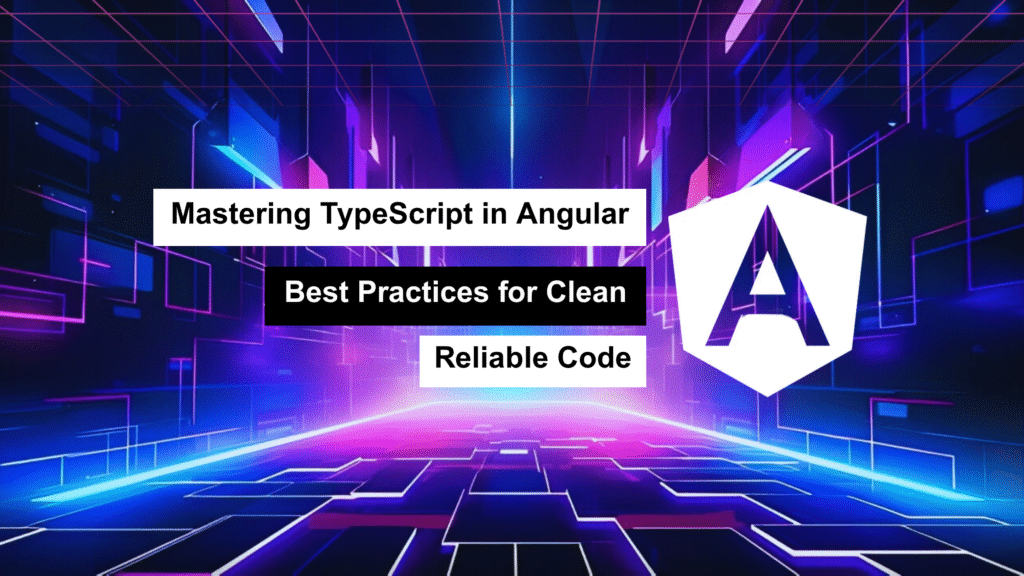
TypeScript is the backbone of Angular development—and for good reason. It offers strong typing, advanced tooling, and enhanced error detection that JavaScript simply can’t match. When used effectively, TypeScript leads to better structure, fewer bugs, and a smoother development experience.
Here’s how you can get the most out of TypeScript in your Angular projects.
🧱 Embrace Strong Typing Everywhere
The core power of TypeScript lies in its static typing. Always declare types for your variables, function parameters, and return values to prevent unexpected runtime issues.
🔴 Avoid This (JavaScript Style)
let username;
username = 'John';
username = 123; // No error in JS, but this is risky
✅ Do This Instead
let username: string = 'John';
💡 Use Interfaces for Structured Data
Define your object shapes using interfaces or type aliases. This improves code clarity and tooling support.
interface User {
id: number;
name: string;
email: string;
}
const user: User = {
id: 1,
name: 'Alice',
email: 'alice@example.com'
};
⚙️ Type Everything in Angular Components & Services
Angular itself is designed with TypeScript in mind. Use its type system to your full advantage:
✅ Typed Services
@Injectable({ providedIn: 'root' })
export class UserService {
constructor(private http: HttpClient) {}
getUser(): Observable<User> {
return this.http.get<User>('https://api.example.com/user');
}
}
✅ Typed Reactive Forms
this.form = new FormGroup({
username: new FormControl<string>(''),
age: new FormControl<number | null>(null)
});
🧭 Use Enums & Constants for Clarity
Enums help eliminate hardcoded strings or numbers, making your code more readable and maintainable.
enum UserRole {
Admin = 'ADMIN',
Editor = 'EDITOR',
Viewer = 'VIEWER'
}
const currentUserRole: UserRole = UserRole.Admin;
🔐 Turn On Strict Mode (Seriously)
Strict mode is your best friend for writing safe, predictable code. Enable it in your tsconfig.json:
"compilerOptions": {
"strict": true,
"noImplicitAny": true,
"strictNullChecks": true
}
This forces you to handle edge cases and nullability up front, saving you hours of debugging later.
⚠️ Avoid the any Type
Using any is essentially opting out of TypeScript. It removes all the type safety and defeats the purpose.
🚫 Don’t Do This:
let data: any;
✅ Do This Instead:
let data: unknown; // Safer alternative
Or, if you know the structure, define a proper type or interface.
🎯 Final Thoughts
TypeScript is more than just a language—it’s a safety net for your Angular apps. By fully embracing strong typing, using interfaces, leveraging Angular’s built-in types, and avoiding any, you write code that’s easier to maintain, easier to test, and far more robust.
Start using TypeScript like a pro, and your Angular projects will thank you for it.
